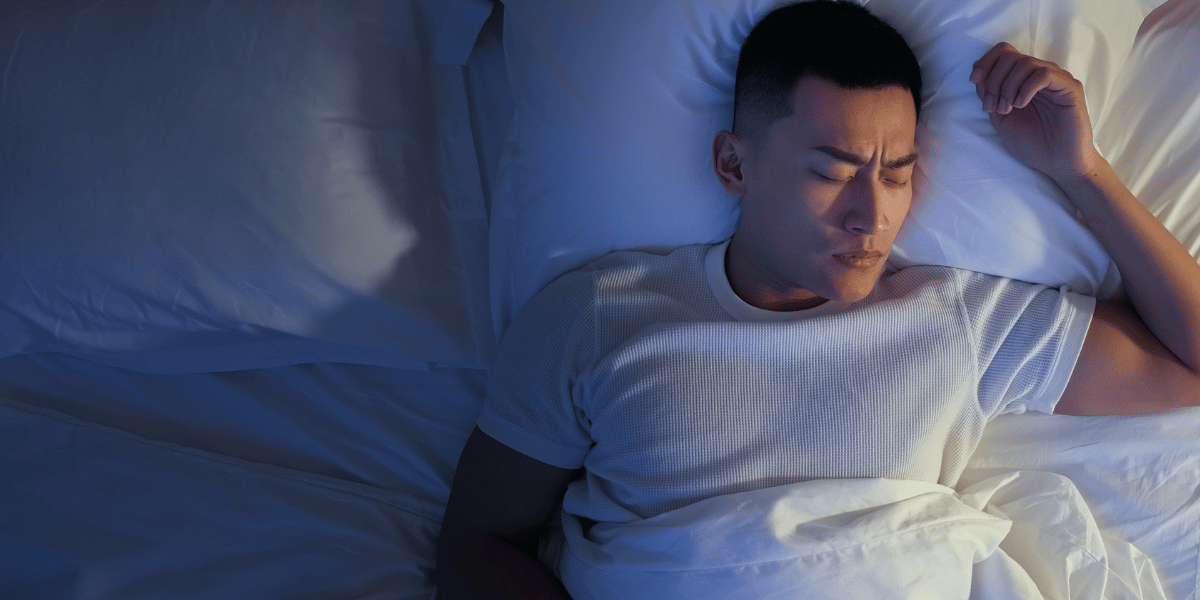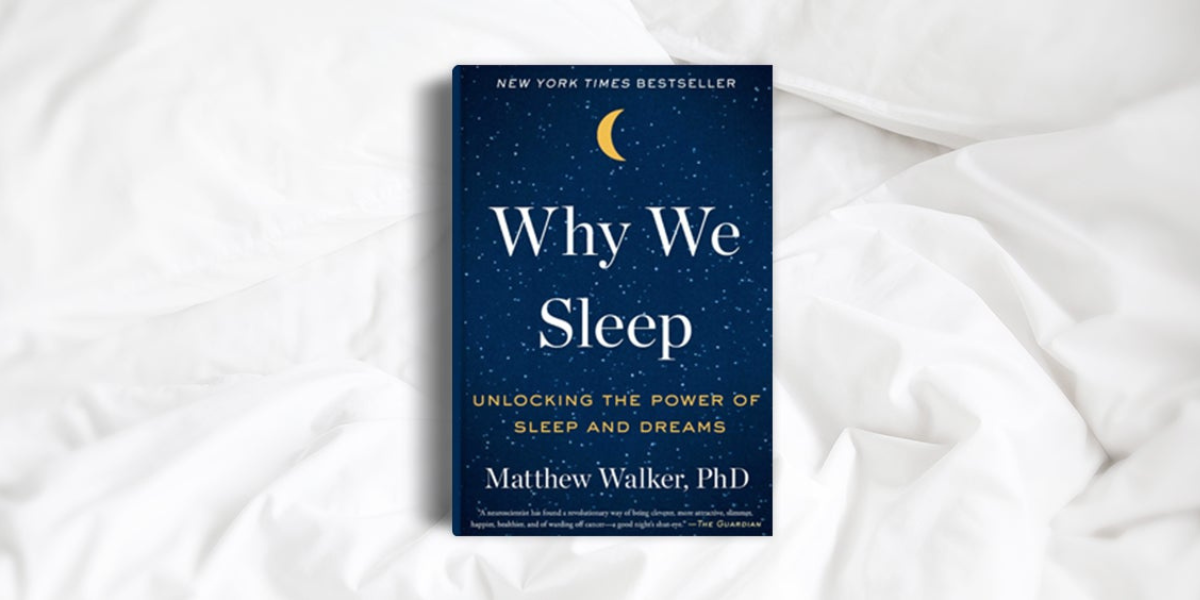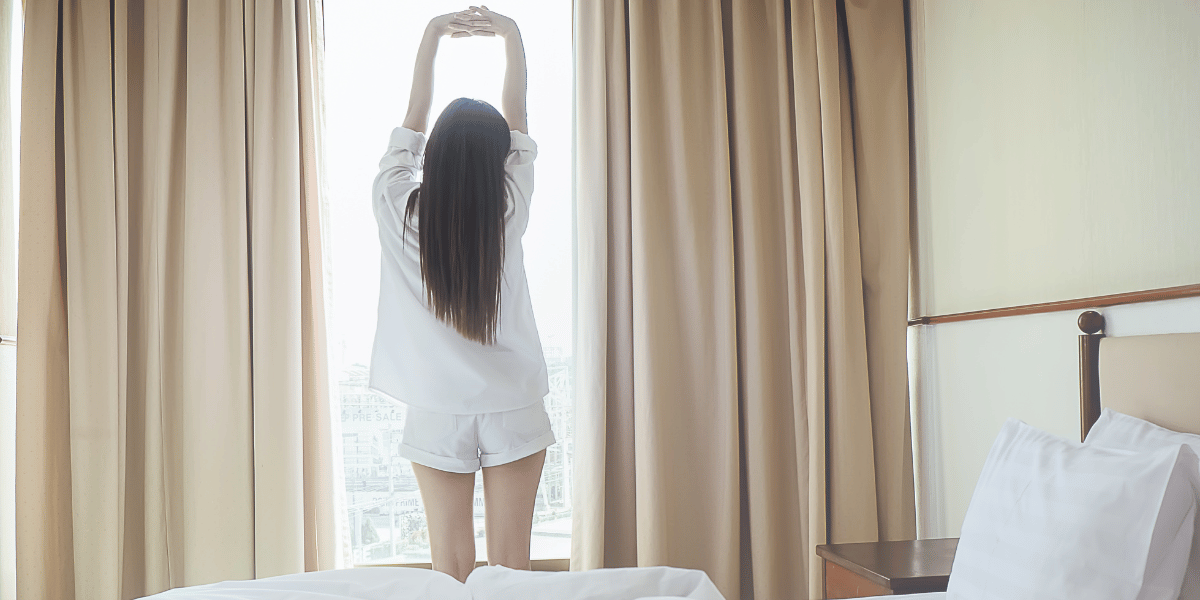Remove Excess Stress From Your Life
There is a lot that can be said about stress, but the focus of this article is to focus on practical strategies to help you lower cortisol levels,...
.png?width=70&height=70&name=Stark_LogoMark%20(1).png)

Not getting a good night’s sleep? You’re not alone. Over 40 million Americans struggle with chronic sleep disorders, and a restless night’s sleep has just become today’s norm. That figure is not surprising considering we’re living in a 24/7 society where nothing switches off. Why sleep when you can watch cable TV, surf the net, and catch up on an endless supply of emails? Technology, jobs, stress, and toxic chemicals are all disrupting our homeostasis and as a result, our sleep is disrupted.
Sleep problems are complex and as such, there’s no cure-all pill we can take to get a better night’s sleep. If there was, you’d expect it to be one of the most sought-after drugs on the market. In order to improve your sleep, you need to start looking at what’s causing you to toss and turn in the first place.
Without a doubt, technology has had a significant impact on why more and more people are suffering from sleep issues. According to the Sleep Health Foundation, the bright lights of devices like our iPads, laptops, and smartphones can disrupt the levels of our sleep hormone melatonin.
In the evening, our melatonin levels naturally rise to alert us it’s time to sleep. However, staring at a device for 1.5 hours will cause you to become increasingly more alert and less sleepy, as your brain is stimulated.
The more processed foods we’re consuming, the more we’re likely to be consuming stimulants and suffering from nutrient deficiencies. Drink caffeinated beverages like coffee and soda, and inhale nicotine and you’ll be sabotaging your efforts to get those much-needed zzz’s. Spicy, fatty, and acidic foods can also be playing their role by causing heartburn, reflux, and gastrointestinal distress.
When our diet is poor, we lack the right nutrients. In fact, up to 80% of Americans are magnesium deficient, with insomnia being a major symptom. A lack of potassium is likely to cause you to wake during the night reducing the quality of your sleep, and a lack of Vitamin D will see you struggling to stay awake during the day. Get enough vitamin B6 and your body will produce the calming hormone, serotonin; zinc and calcium are known to be natural relaxants.
The good news? Consuming a varied, whole-food diet packed with vitamins and minerals, you're far less likely to suffer from a deficiency.
High-density, urban living means the noise and light pollution is far greater than our natural habit. Noise, whether it’s your partying neighbors or traffic from a busy road, leads to stress on the body by increasing your cortisol levels and secretion of adrenaline. As a form of protection, hearing is one of our body’s alarm systems alerting us of potential danger.
This doesn’t switch off when we’re asleep, and our brain continues to receive, register, and process the noises around us. This causes us to wake or toss and turn, altering our sleep depth and quality.
Exposure to artificial light is also going to be messing up your natural body cycles, known as the circadian rhythm, and our melatonin production. When we are exposed to light during sleep, melatonin is suppressed. Simply put, no melatonin equals no sleep.
If your liver is overburdened in its roles including metabolic function and detoxification, it’s compromised. Alcohol, poor nutrition, smoking, lack of exercise, drugs, and exposure to chemicals are all adding immense pressure on our bodies to clear out the toxic build-up. The pressure that we’re really not designed to cope with. Not only that, but the oxidative stress we cause through exercise and emotional stress also creates free radicals. If they’re not cleared out, you’ll be waking through the night due to things like blood sugar imbalances and fluid build-up.
Interestingly, sleep deprivation is also a major cause of liver stress due to the oxidative stress it inflicts on the organ. People who suffer from sleep deprivation are found to have underperforming livers, where fat isn’t processing efficiently and instead it’s allowed to build up in our liver.
Emotional stress is a major cause of sleep issues. Our minds race with to-do lists, thoughts, and worries impairing our body’s ability to repair and rebuild during rest. Tossing and turning reduces the quality of sleep and if occurring on a regular basis, chronic stress levels increase the risk of insomnia.
Stress also causes the sympathetic nervous system to remain engaged. If the calmer, parasympathetic nervous system isn’t switched on, your brain remains alert and hyperactive causing you to lay in bed wide awake.
The problem is the more you’re stressed, the less you sleep. The less you sleep, the more you stress. This just becomes a vicious cycle that leads to a whole list of health issues.
Instead of soldiering on with little to no sleep or complaining because your energy is depleted, start looking at what’s sabotaging your sleep. It could be as easy as switching off your phone an hour or two before you turn in or boosting your vegetable intake! Helping to improve sleep quality is one of the most complex issues at Stark. If this article doesn’t help, or you have specific questions, feel free to reach out to us at info@starklife.us

There is a lot that can be said about stress, but the focus of this article is to focus on practical strategies to help you lower cortisol levels,...

In this fast-paced, 'always-on' world, sleep often gets relegated to the bottom of the to-do list. Enter Matthew Walker's "Why We Sleep." Walker, a...

Do you know that feeling of soreness and stiffness after an intense workout? That's your body telling you it needs rest and recovery. But did you...